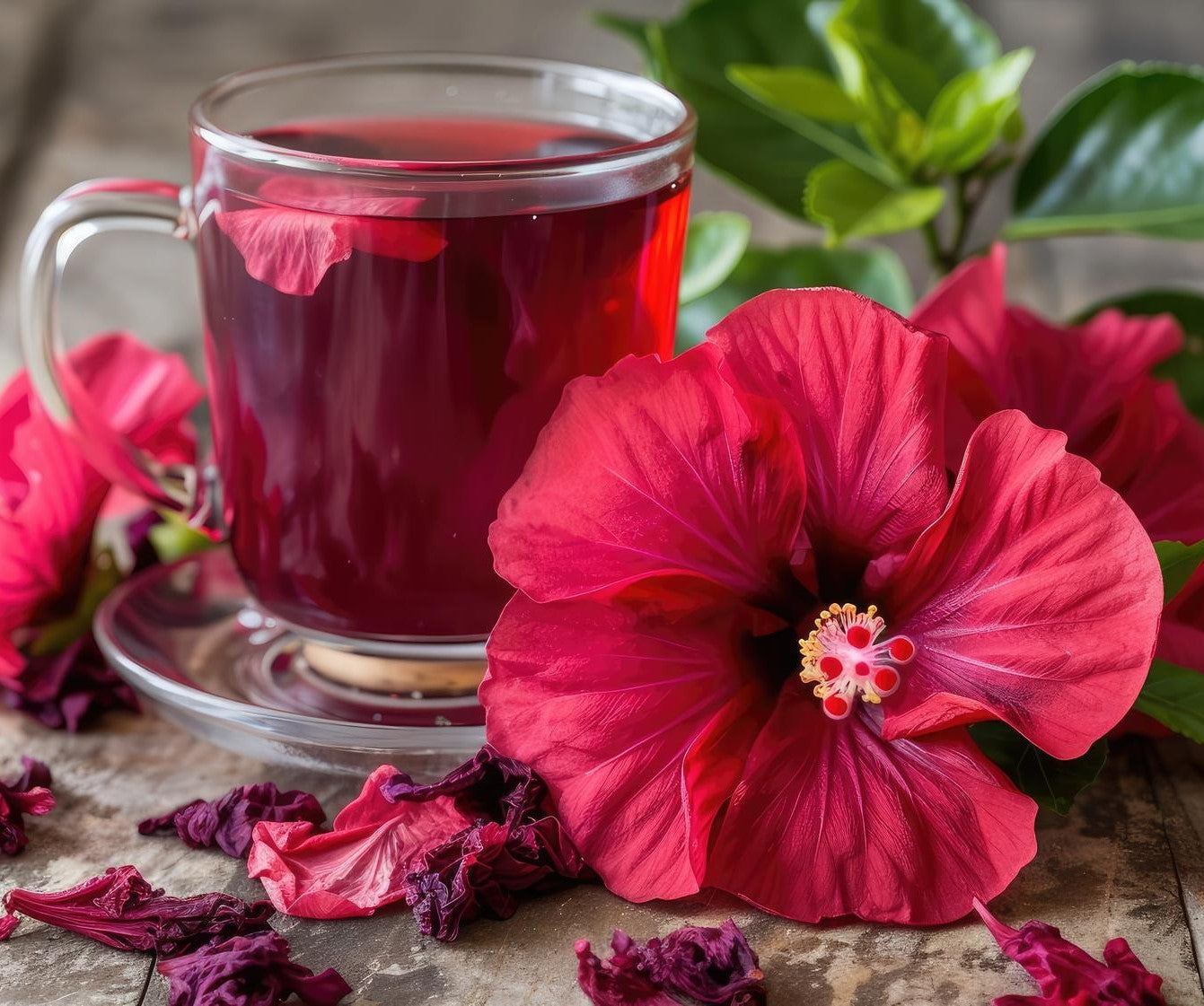Is Hibiscus tea good for you?

Hibiscus is a plant with characteristic, beautiful flowers, cultivated in many countries primarily for ornamental purposes. The flowers are also used to make hibiscus tea. Hibiscus tea lowers blood pressure, regulates cholesterol levels, has anti-inflammatory, antibacterial and diuretic properties, strengthens the immune system - these are just some of the health-promoting properties of hibiscus. What else does hibiscus help with?
Due to the richness of health-promoting ingredients, hibiscus flowers are used to treat various ailments. The infusion prepared from these flowers is a source of vitamin C, calcium, magnesium, phosphorus, potassium and various mineral salts. Hibiscus also contains organic acids, flavonoids, polyphenols and anthocyanins.
Hibiscus has long been used in folk medicine, primarily to cleanse the body of toxins, because it stimulates metabolism, has a gentle laxative and diuretic effect, preventing water stagnation in the body.
Hibiscus tea lowers blood pressure, influences normal cholesterol levels, and regulates liver function. It strengthens the heart and circulatory system, reducing the risk of heart attack and atherosclerosis.
Thanks to the high content of vitamin C and other ingredients, it has anti-inflammatory and antibacterial properties, so it is useful in the case of colds and infections, including those with fever. At the same time, it improves the functioning of the immune system.




